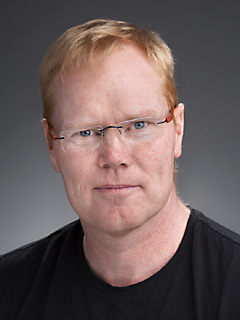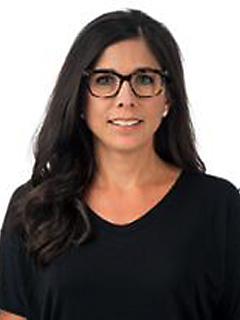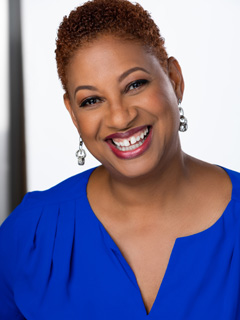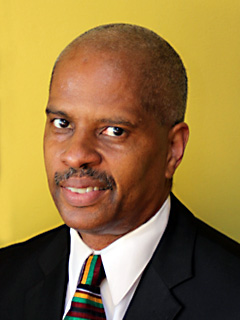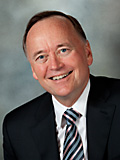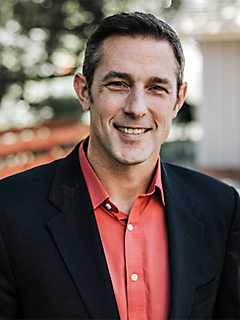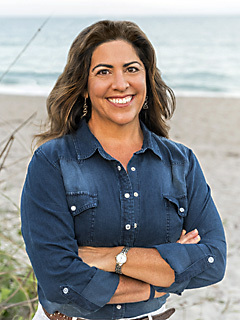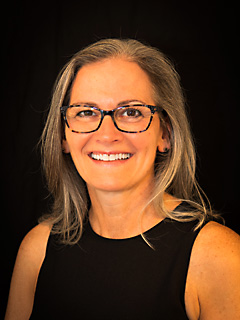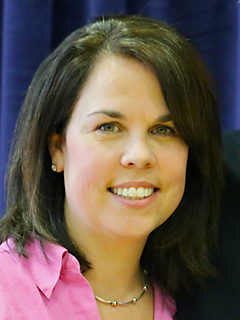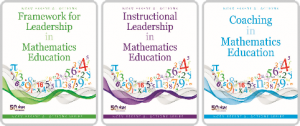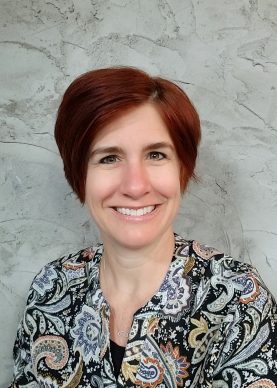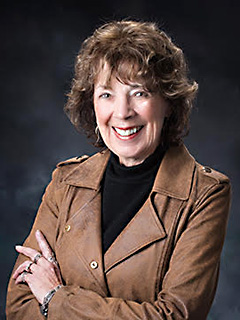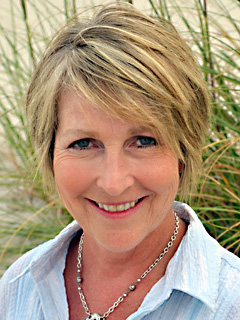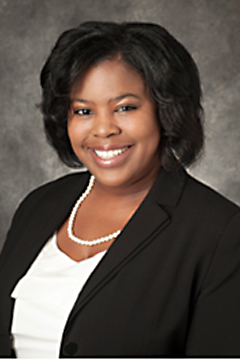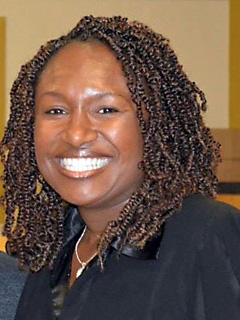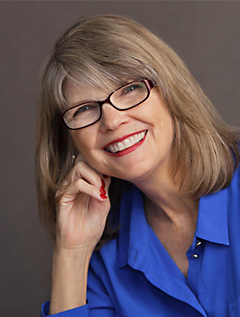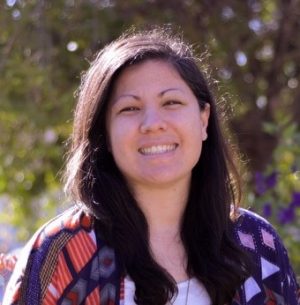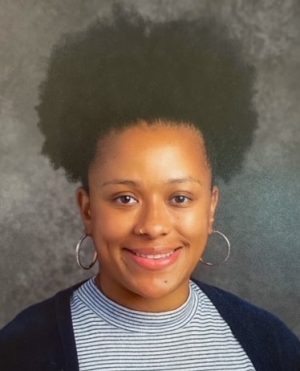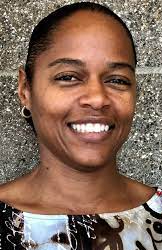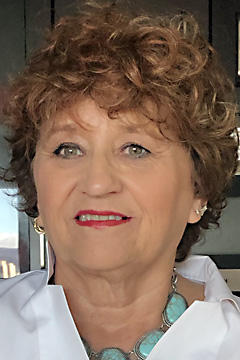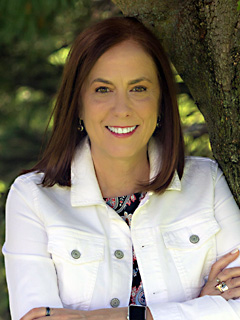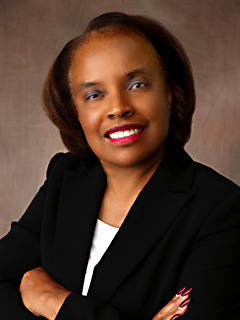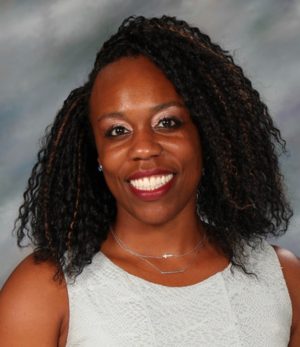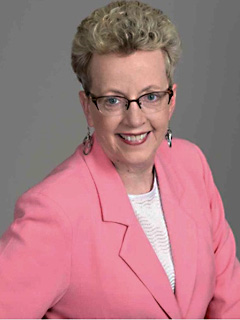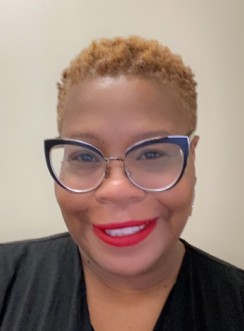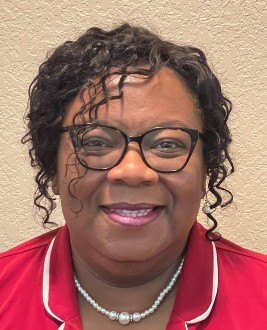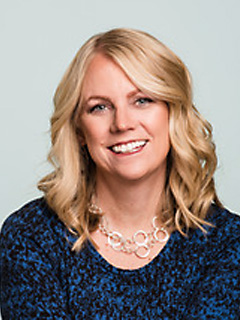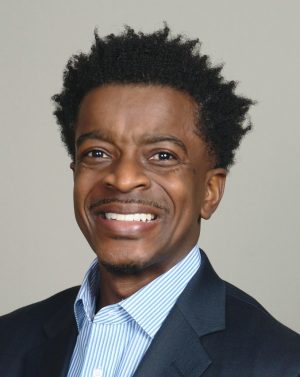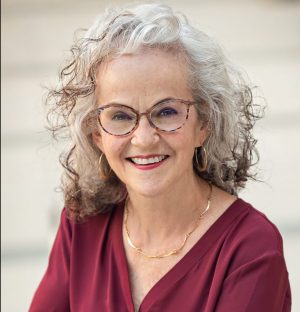Beyond the Conference 2021
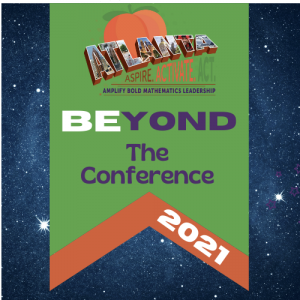 Amplify your Virtual Conference experience with Beyond the Conference: 2021
Amplify your Virtual Conference experience with Beyond the Conference: 2021
Beyond the Conference 2021 is your opportunity to virtually engage and network with colleagues as we deepen our mathematics leadership strategies and practices.
The Beyond the Conference experience includes:
* Weekly live presentations by our major and spotlight speakers from the Atlanta Program (via Zoom) every Tuesday from October 5 through December 14, 2021 at 7:00 PM Eastern Time. These will be recorded and updated each week.
* More than 60 pre-recorded sessions from our Atlanta program.
* Recordings from our September 2021 NCSM Celebration, including our Keynote Gloria Ladson-Billings
All recordings will be accessible during the 90 day viewing period on the Beyond the Conference website.
NCSM prides itself on creating opportunities for mathematics leaders to connect with other leaders, reflect on their current reality, in order to make intentional leadership actions to improve student learning for all. The live sessions will be opportunity to ask questions and grapple with current mathematics leadership issues with other leaders on next steps for your BOLD math leadership journey.
All Beyond the Conference participants will receive a certificate and digital badge for participating.
Schedule
All participants will have access to the pre-recorded sessions during the 90 day viewing period on the NCSM platform. Additionally, there are weekly live sessions on Tuesday evenings beginning October 5 and continuing through December 14. Participants will find the session links on the Beyond the Conference platform. Each live session will begin at 7:00 PM Eastern Time.
Speakers Schedule
All participants will have access to the pre-recorded sessions during the 90 day viewing period on the NCSM platform. Additionally, there are weekly live sessions on Tuesday evenings beginning October 5 and continuing through December 14. Participants will find the session links on the NCSM conference platform. #NCSMlive sessions begin every Tuesday night at 7:00 PM Eastern Time. Below is the schedule* for the live sessions.
October 5 |
Peter Liljedahl Building Thinking Classrooms |
Steve Leinwand A Game Plan for Invigorating High School Mathematics |
Mary Kemper Becoming Abundantly Clear on a System of Intervention |
October 12 |
Dr. Pamela Seda Kyndall Brown I See You Care: A Deeper Dive into Using Equity as a Lens to Frame Your Mathematics Instruction |
Tim Kanold Attending To The Heart & Soul Of Your Leadership Life! |
Mike Flynn Engaging in the Deep Work of Mathematics: Supporting High-Cognitive Learning in the Age of Distraction |
October 19 |
Jim Ewing Teaching Math to ELs: 5 Tools |
Juli Dixon Continuing the Journey: How to Move Forward When Your GPS is Telling You to Make a U-Turn |
Grace Kelemanik Amy Lucenta Reasoning Routines: A window into the process to design your own |
October 26 |
The NCSM Coaching Corner Team (Sarah Schuhl, Erin Lehmann, Sharon Rendon, and Tom Stricklin) NCSM: Mathematics Coaching Essential Actions |
Lisa Brown Danielle Seabold From Equity Talk to Equity Walk: Equity Mindedness is for Everyone |
Shelly Jones Activating Leadership for Access to More Equitable Mathematics Teaching and Learning Through Anti-Racist Practices and Policies |
November 2 |
Marian Small Changing Teaching Practice is Grounded in Self-Reflection: A Leader’s Job is to Help Teachers Know What to Reflect On |
Pam Harris Coaching Teachers Through Classroom Video Study |
Gail Burrill Rethinking what it means to know mathematics: Enabling teachers to create a “new normal” |
November 9 |
John Sangiovanni Jenny Bay-Williams Bold Leadership for Figuring Out Fluency |
Javier Garcia Our People, Our Knowledge, and Our Systems |
Brea Ratliff Points of Inflection: Mathematics Leadership to Activate Change |
November 16 |
Christina Lincoln-Moore Talk Number 2 Me: How can Mindful Mathematics Leaders Engender Formidable Mathematical Identities? |
James Tanton How to Teach the Problem-Solving Mindset while Teaching
|
Cathy Seeley If Ever There Was a Time—How Bold Will You Dare to Be in a World that Changes Every Day? |
November 23 |
Aly Martinez Amber Walker
Tina Lawson Patrice Woods Dismantling Tracking: Creating Equitable Math Classrooms Panel Discussion |
Barbara Dougherty Karen Karp Build Your Team: Creating a Mathematics Whole School Agreement |
Linda Fulmore Committing to Actions that Move Equity Work Forward |
November 30 |
Bill Barnes John Staley Transformation Conversations: Leading with a Lens of Equity
|
Brian Buckhalter Candies Cook Teamwork Makes the Dream Work: The Story of Two Mathematics Coaches Who Established and Sustained a Rigorous District Mathematics Program |
Coaching to Empower Effective (and Ineffective) Ways to Support Diverse Learners
|
December 7 |
Crystal Watson Coaching as a Thought Partnership
|
Kandi Hunter Lowanna Jones Transfer of Learning Through Mathematics Professional Development to Support Teachers |
Mona Toncheff Bold Mathematics Leadership: What does it take? |
December 14 |
Dr. Kristopher J. Childs You Are the One! — Bold Leadership |
Deborah Ball Darrius Robinson Making Mathematics Teaching Work: Raising its Power to Disrupt White Supremacy |
Date |
Speaker |
Beyond the Conference -Live session 7:00 pm EST |
10/5/21 |
Peter Lilljedahl |
Building Thinking Classrooms Much of how classrooms look and much of what happens in them today is guided by institutional norms laid down at the inception of an industrial-age model of public education. These norms have enabled a culture of teaching and learning that is often devoid of student thinking. In this session I present some of the results of over 15 years of research into how teachers can transform their classrooms from a space where students mimic to where students think. The practices discussed will intertwine with, and make extensive references to, the recently published book, Building Thinking Classrooms in Mathematics (Grades K-12): 14 Teaching Practices for Enhancing Learning. |
| Steve Leinwand |
A Game Plan for Invigorating High School Mathematics We all know that since the Common Core, the K-8 curriculum is so much stronger. We know that colleges are adopting sensible pathways that expand opportunities. But High School is stuck with little coherent guidance other more of the same, a non-integrated Algebra and Geometry sandwich, for too much attention to obsolete skills and far too little attention to statistics and modeling. We’ll look at why and how to change this situation. |
|
| Mary Kemper |
Becoming Abundantly Clear on a System of Intervention During this session, I will share my story of building a K-5 Math Response to Intervention (RtI) system from the ground up. This standards-aligned, sustainable, dual language (English and Spanish) set of materials were developed over the course of 6 years and includes universal screeners, specific, measurable goals, intervention lessons, and progress monitoring tools. I will also share my story of guiding secondary mathematics educators to design and implement small group instruction based on pre-assessments aligned to pre-requisite skills of upcoming topics of study. I have become abundantly clear on this K-5 system of intervention and secondary mathematics small group model as a bold mathematics education leader within and beyond my district. |
|
10/12/21 |
Dr. Pamela Seda and Kyndall Brown |
I See You Care: A Deeper Dive into Using Equity as a Lens to Frame Your Mathematics Instruction Implementing instructional strategies without attending to the inequities that have resulted from decades of ignorance, discrimination and racist structures will not improve academic outcomes for marginalized students. Without an intentional focus on equity and access, even well-meaning teachers will perpetuate inequitable practices that have resulted in the current achievement gaps in mathematics. In this presentation, participants will learn to use strategies of an equity framework to make equity a reality in their mathematics classrooms. |
| Tim Kanold |
Attending To The Heart & Soul Of Your Leadership Life! In these times of relentless stress, is mathematics teaching and leading your vocation or merely your career? Are your daily professional wellness routines busy or hurried, balanced or exhausting, compassionate or compassionless? Research-affirmed strategies and pedagogy for mathematics are only as good as the positive state of health and well-being of the professionals providing them. Our aspirations for a successful mathematics teaching and leading life are built on a soul story mountain of defining moments – good and bad. Creating moments of vulnerability and trust, gratitude and grace, quietude and joy on your professional timeline is the reason others will follow you. |
|
| Mike Flynn |
Engaging in the Deep Work of Mathematics: Supporting High-Cognitive Learning in the Age of Distraction Deep work is ability to focus without distraction on cognitively demanding tasks for sustained periods of time. This skill enables us to be more productive, develop greater mathematical understandings, and become more effective problem solvers. Unfortunately, today’s digital world makes it harder for all of us to think and work deeply. This session will help you learn how to support the development of deep work habits in mathematics with your students or teachers you support. |
|
10/19/21 |
Jim Ewing |
Teaching Math to ELs: 5 Tools There is a belief that math is math and there is no language involved, but that is a barrier we need to remove. Let’s debunk that myth and learn how to provide access for multilingual learners. Just plugging in strategies is not enough—we also need to be asset-based. For example, using visuals is a strategy, but if students do not visualize themselves in our math curriculum, we are not being equitable. In this engaging webinar, you will learn five mindshifts that you can share with your teachers. |
| Juli Dixon |
Continuing the Journey: How to Move Forward When Your GPS is Telling You to Make a U-Turn Teachers are under pressure to teach their current grade or course while simultaneously addressing unfinished learning from previous years. How do they set their GPS for success? Learn how to focus on the learning goal while attending to key prerequisites in real time. This session examines planning, implementation, and assessment using tasks that meet diverse needs while providing strategies to support learners with scaffolding just in time. Participants will:
|
|
| Grace Kelemanik and Amy Lucenta |
Reasoning Routines: A window into the process to design your own Instructional routines are powerful vehicles for teachers to develop their own practice as well as students’ mathematical practices. In this session, we will share the process we use to design an instructional routine with specific math practice goals and repeatable designs for interaction that provide access and engagement for all students and equitable teaching practices in buildings and districts. |
|
10/26/21 |
The NCSM Coaching Corner Team (Sarah Schuhl, Erin Lehmann, Sharon Rendon, and Tom Stricklin) |
NCSM: Mathematics Coaching Essential Actions Learn how the Nine Essential Coaching Actions are embedded in the NCSM online resource page. You will have the opportunity to browse the resources, learn how to best use them to create equitable math classrooms and connect with other BOLD mathematics leaders and coaches to share successes and lessons learned from coaching. |
| Lisa Brown and Danielle Seabold |
From Equity Talk to Equity Walk: Equity Mindedness is for Everyone Committed to equitable outcomes yet your equity gaps are not closing for students, especially those most marginalized by systemic inequities? Do you need fresh ideas and research-based strategies that support you and your colleagues in making changes in your professional approach that lead to removing barriers to student success? Explore a framework for taking equity-minded action and renewed commitment. Join us to actively collaborate with peers, deepen professional knowledge base, and walk our equity walk! |
|
| Shelly Jones |
Activating Leadership for Access to More Equitable Mathematics Teaching and Learning Through Anti-Racist Practices and Policies Bold leadership in mathematics education requires taking a stand against racist educational policies that have continued to segregate students into the haves and the have nots in terms of mathematics excellence. How do we turn that around? In this session, the presenter will focus on the Essential Actions needed to detrack mathematics and the core propositions of implementing a culturally relevant mathematics curriculum as first steps in this journey. |
|
11/2/21 |
Marian Small |
Changing Teaching Practice is Grounded in Self-Reflection: A Leader’s Job is to Help Teachers Know What to Reflect On Over many years I have learned a few things about supporting teachers to change their instructional strategies. First: Don’t preach! Offer thoughtful suggestions with rationale ,and provide support. Second: Encourage a focus on the “big stuff”, including attention to the teacher’s beliefs about the intent of math instruction, not just details and not just structures. Third: Little steps don’t work! Teachers need to commit and stay with it for a while. |
| Pam Harris |
Coaching Teachers Through Classroom Video Study How can we help surface underlying beliefs about teaching and learning, equity, and the nature of mathematics to help teachers make decisions based on what they actually believe instead of reverting to teaching by habit from their school experience? We’ve designed a purposeful cycle of teacher tasks from coaching to classroom and back to coaching to provide for continuing, sustained, collaborative team and teacher support. |
|
| Gail Burrill |
Rethinking what it means to know mathematics: Enabling teachers to create a “new normal” Do the tasks/assessments given by your teachers “measure up”? Can the students find all of the answers they need for their assignments/tests using a computer search? Heads up- software is available to answer almost all of these questions along with the steps and reasons. The pandemic provides an opportunity to create a “new normal” by rethinking the nature of tasks and assessments we give students to measure the mathematics it is important to really understand. |
|
11/9/21 |
John Sangiovanni and Jenny Bay-Williams |
Bold Leadership for Figuring Out Fluency Procedural fluency is complex. Teaching it well is challenging. Teaching it equitably is non-negotiable. This session establishes actions for boldly leading an equitable, accessible, and effective fluency program. It examines fluency – beyond basic facts – as an intentional act with common understanding, instruction, practice, assessment, and community engagement. |
| Javier Garcia |
Our People, Our Knowledge, and Our Systems The pandemic has raised questions about our educational systems that some have been pointing to some time. Will the post-pandemic return to school be a “return to normal” or will we see these questions through and establish better solutions than those that existed before the pandemic? When our positions within the system color our perspectives, what can we do to improve communication and understanding between various organization layers and ensure efforts are aligned? How do we work in a way that upholds the humanity of each person of the community? We’ll share promising practices from experience, recent literature and research, as well as highlight principles and potential pitfalls. We’ll discuss navigating the many complex layers and power dynamics of our systems and consider how we might reshape things to do right by our students and our communities. |
|
| Brea Ratliff |
Points of Inflection: Mathematics Leadership to Activate Change Mathematics leaders are responsible for making critical decisions to promote student success and affect change at many levels. This session will equip you with tools to transform mathematics instruction at the classroom, building and district-levels. Learn how to develop effective mathematics leadership teams, facilitate courageous conversations and champion positive mathematics identities for all stakeholders. |
|
11/16/21 |
Christina Lincoln-Moore |
Talk Number 2 Me: How can Mindful Mathematics Leaders Engender Formidable Mathematical Identities? EMPOWER! BOLD Mathematical Leaders begin with Leadership of Self. Commit to self-development. Be a school leader who provides authentic professional development for yourself-first and their staff-second. Let’s explore four key areas of mathematics leadership: 1) What’s your personal Mathematics Identity? 2) Employ Contemplative Reflection as a Mindful Leader, 3) Be Brave, Bold to be vulnerable, challenge your own assumptions, and 4) Developing a keen Lens to guide teacher planning, professional development, and evaluation. |
| James Tanton |
How to Teach the Problem-Solving Mindset while Teaching How do we model and practice uncluttered thinking and joyous doing in the classroom? How do we foster deep understanding while encouraging the art of successful flailing? Our complex society demands of its next generation not only mastery of quantitative skills, but also the confidence to ask new questions, explore, wonder, flail, persevere, innovate, and succeed. Let’s not only send humans to Mars, let’s give our next generation the confidence to solve problems and get those humans back if something goes wrong! Let me play with some standard curriculum math and explore how to use it as a vehicle for teaching confident thinking. |
|
| Cathy Seeley |
If Ever There Was a Time—How Bold Will You Dare to Be in a World that Changes Every Day? Being a bold leader during ‘normal’ times is challenging enough. After a weird 2020-2021 school year, this year continues to offer plenty of opportunities disguised as even more challenges. When what we’ve always done can’t be done, how about trying something truly bold? What bold actions can you take that might help your teachers and students have their best school year yet?
|
|
11/23/21 |
Aly Martinez, Amber Walker,Tina Lawson and Patrice Woods |
NCSM Dismantling Detracking: Creating Equitable Math Classrooms Panel Discussion Creating equitable math classrooms starts with both beliefs and structures. Join us as we engage in a panel discussion on the effects of tracking, ways bold math leaders have worked with their communities, and the work they are doing in their districts to move away from tracking as an inequitable practice. Along with this we will tie the discussion back to the NCSM position paper on tracking so you can go back with resources and ideas on how to best start the discussion at your school or district. |
| Barbara Dougherty and Karen Karp |
Build Your Team: Creating a Mathematics Whole School Agreement Is your school using consistent mathematical language across the grades? How are representations growing in sophistication and utility from one grade to the next? The Mathematics Whole School Agreement process aligns mathematical language, notation, representations, rules and generalizations across and within grades in a cohesive approach to teaching mathematics! |
|
| Linda Fulmore |
Committing to Actions that Move Equity Work Forward Taking bold leadership for equity is a continuous process of examining current strategies while searching for what’s working in other places. This session will highlight initiatives that have promise to move equity work forward. We will look at one school’s antiracism initiative, study equitable math instruction efforts, and examine components of equity-focused lesson study. A goal is to inspire new actions that can complement work already in progress. |
|
11/30/21 |
Bill Barnes and John Staley |
Transformation Conversations: Leading with a Lens of Equity Effective leaders of mathematics are committed to educational justice for ALL students. Leading with a lens of equity requires that the mathematics education community engage in the sensitive, transformational conversations designed to reveal the root causes of inequity. Do all teachers truly believe that every student can learn mathematics? How does implicit bias contribute to opportunity gaps for some student groups? How do microaggressions limit the potential across race and gender? These are some of the discussions that demand the careful attention of all educational leaders, especially those charged with the responsibility of helping all children graduate with their dreams intact. In this session, leaders will learn how to utilize NCSM’s new Transformational Conversations resources to engage stakeholders in meaningful discussions about inequity in mathematics. |
| Brian Buckhalter and Candies Cook |
Teamwork Makes the Dream Work: The Story of Two Mathematics Coaches Who Established and Sustained a Rigorous District Mathematics Program In 2013, the Oxford School District hired its first math coach, and in 2019 hired its second. Establishing a comprehensive and coherent mathematics program across 3 schools and two coaches required a collaboration of resources guided by prominent literature in mathematics coaching. Hear how these coaches built a system of support for teachers, students, and administrators across schools, eventually seeing the district’s 3 elementary schools rank among the top three for student growth across Mississippi. |
|
| Maggie McGatha and Jenny Bay-Williams |
Coaching to Empower Effective (and Ineffective) Ways to Support Diverse Learners Effective equitable mathematics teaching includes supporting and challenging students. Yet, many strategies for supporting emergent multilingual students and students with special needs fall short of this goal (e.g., pre-teach vocabulary). We will explore research-based effective (and ineffective) mathematics teaching strategies for these learners, then investigate professional learning activities and coaching tools that help teachers become more effective in empowering their diverse students. |
|
12/7/21 |
Crystal Watson |
Coaching as a Thought Partnership Having an instructional coach willing to truly be a thought partner in the work can make a difference in helping to create buy-in, build knowledge and capacity, and ultimately create lasting changes with sustainable outcomes. In this session we will explore ways to reimagine the coaching role. We will work together to realize the ways we can emphasize teacher voice and input all while meeting district objectives. |
| Kandi Hunter and Lowanna Jones |
Transfer of Learning Through Mathematics Professional Development to Support Teachers Transfer of learning through PD to mathematics instruction is essential for teacher instructional practices to change student-learning outcomes. When teachers receive both the right type and amount of support, it is assumed that the educational excellence of students will follow (Jacob & McGovern, 2015). This presentation will examine strategies for leaders to support teachers of mathematics to increase the quality of the learning experience for students. |
|
| Mona Toncheff |
Bold Mathematics Leadership: What does it take? Every mathematics leader is charged with forging a path which leads to improved student learning through meaningful commitments to those they serve. The NCSM vision statement is crystal clear. Mathematics leaders aim to “guarantee that all students engage in equitable, high-quality mathematical experiences” to “improve the world” in which they live. Courageous mathematics leaders work within school systems to champion the changes and shifts needed to continuously improve learning. They intentionally focus on equity and access when driving systemic change. How can you ensure the learning of the adults and the students you serve go hand in hand? Through examples, Mona will explore the Empower guiding principle of the NCSM Essential Actions Series: Framework for Mathematics Leadership. Walk away with bold leadership strategies to empower a culture of productive professionalism and continuous improvement. |
|
12/14/21 |
Dr. Kristopher J. Childs |
You Are the One! — Bold Leadership It is time for bold leadership in mathematics education as education is facing unprecedented challenges. As a leader you are in a position to facilitate positive, impactful, and lasting change. In this session we will discuss what it means to care about all students, the difference between being a messenger and leader, and determining one’s legacy as a leader. |
| Deborah Ball and Darrius Robinson |
Making Mathematics Teaching Work: Raising its Power to Disrupt White Supremacy The past 18 months have put in sharp and painful relief the deep inequities embedded in the basic structures of our society as Black, Latinx, and Indigenous communities have disproportionately suffered from the dual pandemics of Covid-19 and state-sanctioned violence. In particular, the impact of Covid-19 on teaching and learning has highlighted the pervasiveness of inequitable access to key educational resources and brought renewed attention to the disparities that such inequity perpetuates. Teaching at all levels has enormous potential to disrupt these inequities yet it often reifies and reproduces them. This talk will investigate how inequity is reified in and through mathematics teaching. In particular we focus on how narrow constructions of mathematics knowledge and common instructional interactions lead to inequitable practices that inhibit the mathematical development of marginalized students. We will explore how teachers and leaders of mathematics can exercise their agency in discretionary spaces to equitably distribute opportunities to positively relate to, and meaningfully engage with, mathematics and will consider what it will take to make such instruction a reality inside of classrooms. |
|
View Beyond the Conference recorded sessions.
Strand |
Speakers |
Title |
Description |
Strand 1 Aspire to Bold Mathematics Leadership |
Brian Buckhalter Erin Lehmann |
Are you ready to submit or review an article for the NCSM Journal? | Join NCSM’s Journal editors as they discuss tips for submitting and reviewing articles for the JMEL. Join us and learn about best practices for a successful submission or review of a manuscript. We will answer any questions you may have about the submission, review, and acceptance process. |
| Trena Wilkerson | Bold Actions as Mathematics Leaders: Providing a Professional Space | Taking bold actions to advocate for high-quality equitable mathematics teaching and learning for each and every student is imperative for every leader. How do leaders create spaces for professional collaboration giving opportunity for reflection on beliefs, engaging in professional learning, and fostering an asset-based approach for students and teachers? How do we prioritize instructional time and develop coherent pathways with curriculum and assessments? Let’s explore bold actions to catalyze change in teaching and learning mathematics. | |
| Judy Dunmire | Empowering and Inspiring Teachers as Agents of Change | In this session, teacher leaders will learn strategies for inviting all voices to be heard without inspiring chaos! We will engage in activities to model the strategies our district used to develop our mission and vision, define our roles, and understand how those roles work together. Since change is not instantaneous, we must establish a sequence of smaller goals and provide research, evidence, training, support, and accountability to ensure we meet our goals. | |
| Pamela Buffington Jill Neumayer DePiper Laura Kassner |
The strength of partnerships: Supporting design and implementation of equity-oriented, cohesive, evidence-based mathematics professional learning plans | Session attendees will learn how district mathematics leaders and researchers can form partnerships to design, implement, and evaluate cohesive teacher professional development (PD) to improve mathematics teacher professional learning. We will share how the evidence-based PD reflects partners’ shared commitment to supporting students’ algebraic reasoning and success, and what district leaders learned from collecting data to assess teacher learning during PD. Attendees will engage in discussion about findings and other insights gained from the partnership. | |
| Paul Gray Jr. | NCSM Essential Actions: Framework for Leadership in Mathematics Education | Learn more about NCSM’s Framework for Leadership in Mathematics Education! Join NCSM President Paul Gray and four authors of the book and get the inside scoop from the writers’ perspective of each of the four guiding principles in the framework. | |
| Carrie Cutler | Math-Positive Mindsets: How to Leverage Family Engagement to Maximize Students’ Learning Potential | Elementary teachers are tasked with building students’ math-positive mindsets but are sometimes undermined by caregivers’ fixed attitudes. Learn how to grow familial mindsets by leveraging traditional family engagement structures–parent conferences, school newsletters, and family math night–as well as innovative approaches like take-home math literacy bags. We’ll share how we’ve adapted Stanford’s Project for Education Research that Scales (2015) to teach families the malleability of intelligence and growth mindset beliefs, actions, and language. | |
| David Woodward | Screening for Number Sense: Using Assessment to Focus on Number Sense, Increase Equity, and Recover from a Pandemic | Number sense is the golden ladder of mathematical cognition. In July of 2020, revised Universal Screeners for Number Sense were released as open source documents to support schools in understanding student thinking, measuring progress, and focusing instructional time and efforts toward the development of number sense. Come learn about the 12 year history of this project and join our conversation about number sense and it’s central importance to mathematics education. | |
| Tom Dick Gail Burrill |
Connecting mathematics to the world can open doors for students: Implications for Teacher Educators | Mathematics is a fascinating discipline and investigating mathematical relationships can be an enriching experience but one that often does not resonate with students. Structuring activities that involve real data and real contexts from analyzing climate change to herd immunity can engage more students in doing more mathematics. How do we help teachers make the shift from textbook exercises to productive investigations while still building conceptual understanding and procedural fluency? | |
| Jamila Riser Paul Damask Shellee Wong |
Empowering Communities of Teachers as Change Agents Results in More Ambitious Mathematics Teaching and Impact at the Classroom Level | A central goal of professional learning includes translating teacher learning to more ambitious teaching, and in turn, student learning. But how does this translation occur? What models produce results and how can we leverage the capacity of teacher leaders to enhance the process? In this session, we will examine the essential elements of a research-based statewide video-based program that empowers communities of teachers and results in more ambitious teaching and impact at the classroom level. | |
| David Mattoon Marcie Curcie |
To Boldly Go: Defining Effective Mathematics Practice & Rigor Systemically to Lead for Change, Equitable & High-Quality Mathematics for All | One district’s journey to: Aspire. Defining effective mathematics teaching & rigor. Conceptualizing NCTM’s Effective Mathematics Teaching Practices as tools for systemic change. Defining rigor in mathematics while aligning assessment, curriculum and instructional design. Activate. Activating district leaders, lead teachers, and math coaches as agents of change through the Leading for Mathematical Proficiency and Teaching for Robust Understanding Frameworks. Act. Leveraging cooperative teams & Launch-Explore-Summarize lesson planning to make the vision a reality. | |
| Dale Leibforth Jose M Arias Lara DeMoya Sam Nguyen Pete Bavis Kristen Perkins |
Next Phase Mathematics | Economically, racially, and ethnically diverse Evanston Township High School has used out of the box thinking to create transdisciplinary innovation in their school. The presentation will highlight innovative courses such as STEAM Design Thinking & Innovation which have helped transform how we define mathematics for our school and beyond. | |
| Eric Milou | The Status Quo in High School Mathematics is Unacceptable. | Today, it seems as if nearly everyone agrees that mathematics (especially high school math) needs to change. For far too long, mathematics has not worked for far too many students. Mathematics has not changed substantially in my lifetime, nor has it changed substantially for most students, teachers & schools. It is clearly an issue—and it is time to discuss and make serious changes. | |
| Dr. Martha Parrott | Reimagining the Preparation of Future Mathematics Teachers: COVID Brings Opportunity, not Barriers | Bold mathematics leadership begins with teacher candidates who aspire to become teacher-leaders. Join us for an engaging conversation about how one university has reimagined the preparation of future teachers through unique, authentic experiences that bring a sense of relevance to the changing nature of what schooling looks like today as a result of COVID-19. The pandemic is viewed as an opportunity to expand teacher candidates’ skill sets and not a barrier to their preparation. | |
| Shannon McCaw | Deep Learning through Effective Collaborative Classroom Structures | In this session, coaches and teachers learn strategies for having students (re)engage with each other in the classroom to build deeper learning. We know that student discourse is crucial for increasing student in mathematics. Through the pandemic, it has been more difficult to keep structures going that ask students to engage with each other. Learn three explicit strategies that can be used with students in Grades 3 through 12 in the classroom right now. | |
Strand 2 Activate Leadership for Access and Equity |
Sarah Schuhl | Ensure every student learns mathematics through effective planning and intervention | Giving students access and experience with grade level mathematics is critical to student success and continued learning. How do teachers and teacher teams work to ensure students learn grade- or course-level mathematics? What must teachers plan for when teaching units to strengthen core instruction? What are strategies for designing effective interventions? In this session explore protocols and actions designed to ensure high levels of learning for every student. |
| Brett Parker Amber Cook |
How to Lead Your Teachers to Anti-Racism in the Math Classroom | Participants will learn how to identify barriers that are in place prohibiting learners from receiving access to equitable instruction, including discussions around their own identity work and how that interacts with institutional practices. Participants will learn how to interrogate current instructional practices and leverage current structures to build and sustain anti-racist math classrooms. | |
| Dawn Pilotti | Promoting Access and Equity in Mathematics | An understanding of mathematical concepts is critical for student achievement in mathematics. This session will explore evidence-based teaching practices that promote opportunity and access to high-level mathematics content for neurodiverse learners, specifically those with language-based disabilities and dyscalculia. A focus will be placed on the importance of using visual, tactile and auditory modalities in the classroom for this population of students. | |
| Jo Boaler | The Data Revolution, K-12 | We are in an exciting time in terms of the knowledge we can all access, and the ways knowledge is being communicated. Our world is filled with data and data visualizations and a new, important goal for our teaching is to help students become data literate, learning to make sense of data in their lives and separate fact from fiction. All teachers can teach with a data perspective, integrating the ideas from data science into their teaching. Students can learn to ask questions that are meaningful to them, to explore and study patterns and to communicate with cool data visualizations. I am co-leading a K-12 data science initiative with Steve Levitt (economist & Freakonomics author), which is overseeing significant changes to K-8 content and high school mathematics pathways. The new proposed pathways hold the potential to disrupt the inequities that persist in mathematics and open STEM futures for diverse groups of students. Significant changes are afoot that I am excited to share with leaders. This session will share the big ideas of data science and a range of resources for teachers and leaders. | |
| Tonya Clarke Tiffanie Nealy Charlene Matthew Marsha Lee Kenneth Andrews? |
The I’m W.O.K.E. Project (Widening Options through Knowledge and Empowerment) | The I’m W.O.K.E. Project embeds mathematics content into contexts related to social change and community activism. The project facilitates equitable teaching practices to deepen understanding of mathematics content. Students engage in critical thinking activities and platforms for intellectual conversations, exposing their strengths and passions while encouraging transformed teacher perceptions. The project provides a compelling curriculum that uses mathematiccal modeling to humanize mathematics and quantify injustice to disrupt community norms. It provides students with dispositions to excel and teachers’ with professional knowledge. | |
| Katie Monahan Jennifer K. Ward Joseph DiNapoli |
Conceptualizing Instructional Perseverance in Early-Childhood Mathematics Settings | Engaging with challenging mathematics in early childhood is a vital foundation for children’s future mathematics learning, yet early-childhood students continue to be marginalized as lacking in sophisticated knowledge of mathematics. In this session, we examine how early-childhood instructional perseverance can facilitate access to a lesson’s mathematical goals. Mathematics education leaders will learn how to conceptualize what perseverance looks like in early-childhood mathematics settings and how the role of teacher facilitation is interwoven into classroom actualization. | |
| Jennifer McCray Danny Martin |
What’s the Connection between Racial Justice and Early Mathematics? A CALL TO ACTION | Learn about the work of the Racial Justice in Early Mathematics Working Group, and follow this link (https://earlymath.erikson.edu/racial-justice-in-early-math-call-to-action/) to read, sign and share the Call to Action they produced. | |
| Kristen Reed Jessica Young |
Teachers and Families Working in Partnership to Remove Barriers and Provide All Young Children with Meaningful and Relevant Mathematics Experiences | Learn about an innovative program that can transform the mathematics learning environments of preschool children. Researchers and curriculum developers partnered with teachers, family engagement specialists, and families from several Head Start programs to co-create, test, and re-design mathematics activities that are meaningful, engaging, and enjoyable for all. The intervention—teacher professional development and complementary school, home, and community math activities—had a significant positive effect on preschooler’s mathematics learning compared to a business-as-usual comparison group. | |
| Jim Ewing | Hope for Teachers: Developing Emergent Bilinguals’ Language in Mathematics Class | This motivating, research-based session reveals how you can easily develop emergent bilinguals’ language in mathematics. There is a myth that mathematics is straightforward for emergent bilinguals because it is a universal language and yet these students are struggling (Author, 2020). Committed educators understand that emergent bilinguals will not improve unless we develop students’ language in every subject. Attend this event to obtain foolproof strategies that your teachers can implement immediately to develop mathematical language. | |
| Jessica Rigby Stephanie Forman Casey Jeannot Melissa Pointer Kathy Emerick |
School Leadership for Anti-Racist, Ambitious Mathematics Instruction | School leadership has the potential to shape students’ learning experiences in mathematics. These experiences are racialized, or structured by the relations of race that exist in the larger society (Martin, 2009). At both individual and systems levels, students and teachers have mathematical identities and learning opportunities that are informed by their race(s). We investigate how elementary school principals lead towards disrupting racial inequity in mathematics instruction. | |
| Georgia Cobbs | Activate and Aspire All: Learning Uniqueness through Indigenous Math Lessons | With Montana having 7 reservations with 13 tribes, it is paramount all educators incorporate the indigenous tribes in our teaching as much as we can. This session will discuss the uniqueness of cultures and share MT Tribal math lessons available on our Office of Public Instruction website. Time to explore the Essential Understandings Regarding Montana Indians and how this knowledge can be applied to other cultures. Active participation is expected. | |
| Johannah Nikula Jill Neumayer DePiper |
Design Features of Mathematics Lessons that Facilitate Mathematics Learning and Communication for Emergent Bilingual Students | Facilitating student language access and communication during mathematics instruction is essential for emergent bilingual students. This session will explore lesson design features and strategies from fraction division lessons that research found supported student use of diagrams in mathematical problem-solving and facilitated pairs discussion and mathematical communication. The presentation will share ideas and encourage discussion of how to develop and encourage teachers’ use of these design features and strategies to strengthen instruction for emergent bilingual students. | |
| Elizabeth Hammonds Jeanne Simpson |
If Mathematics is the Gatekeeper, Language is the Key | Enhancing student language development is key to supporting mathematics learning for English Language Learners (ELLs). Students can better engage in the Standards for Mathematical Practices if teachers help them strengthen their mathematical language skills. This session explores strategies to facilitate language development for ELLs at different proficiency levels and makes connections among the Equity Practices and the Effective Mathematics Teaching Practices to show that research on effective mathematics instruction aligns with best practices for supporting ELLs. | |
| Jill Neumayer DePiper Deborah L. Jonas Ryoko Yamaguchi |
Algebra I and College Preparatory Diploma Outcomes among Virginia Students: Findings and Discussion | This session will engage participants in an examination and rich discussion of differentiated outcomes in Algebra I completion and college preparatory diploma attainment for students who achieved the same mathematics proficiency levels on their statewide mathematics assessment in grade 5. You will discover the study results, explore how pathways differed for various students within one statewide cohort, discuss implications for access and equity, and consider what the findings suggest for mathematics placement policy and practice. | |
| Liesl McConchie | ALL Students Can Learn Math – But They Aren’t | We preach that ALL students can learn math, but the data is painting a devastating picture of MANY students not learning math. Why are so many students not achieving mathematical success? Join best-selling author and international speaker for a fast-paced, engaging session to discover the 7 unconscious pre-requisites for a student to learn math in school. Come learn what they are and the tools you need to ensure ALL students learn math in your classroom. | |
| Martin Cardenas | Giving English Learners a Voice in Mathematics by Leveraging the Capabilities of Technology | In this session we will explore how to orchestrate productive mathematical discourse to intentionally support English Learners. Desmos activity builder has capabilities that can leverage students’ language and culture to enhance mathematical learning in a safe environment. Implementation will center around NCTM’s publication of the 5 Practices for Orchestrating Mathematics Discussions. Desmos allows us to leverage technology in order to more efficiently implement the 5 practices. | |
| Judy Dunmire | How Our District Used Illustrative Mathematics Curriculum to Provide Access and Equity and Shift Beliefs About Teaching and Learning | In this session, participants will engage in tasks from Illustrative Mathematics (IM) to promote discussion and collaboration to identify characteristics of tasks and practices that support access and equity. I will also share how we transitioned to IM to provide students’ access to a rigorous, meaningful curriculum; how our teachers apply high-leverage teaching practices and tasks that are meaningful and relevant; and how we provide support to meet the needs of each of our students. | |
| Emily Fagan Beth Chance Josephine Louie Soma Roy |
Using Big data and Social Justice Issues to Engage Black and Latinx High School Students in Statistics | Examining social justice issues using large-scale data can be compelling to students, increasing their understanding of statistics and how data analysis can illuminate and help address social inequality. The session will share the experiences of teachers and students in high school non-AP statistics classes that have used curriculum materials to examine immigration and income inequality in the U.S. Session participants will experience data investigations and hear research findings about student learning and interest. | |
| Nigel Nisbet | From Learning Loss to Unfinished Learning: Changing the Conversation With an Asset-Based Approach | How can you keep your students on grade level in mathematics but still address unfinished learning? For many, the answer would be a diagnostic assessment followed by content to fill the gaps. However, this approach is highly unlikely to provide students with the depth of learning they need on critical concepts. Join us on a journey to explore what’s happening in our students’ brains as they learn and how to meet them where they are. | |
Strand 3 Activate Teachers as Leaders |
Betsy Berry Sheryl Stump Doris Mohr Courtney Flessner Laurie Ferry |
Activating Relationships and Amplifying Leadership in K-12 Schools for Improving Mathematics Teaching and Learning | Our session will describe a year-long academy designed to support teams of K-12 principals and teacher leaders in amplifying their leadership capacity for improving mathematics teaching and learning in their schools. We will report on the outcomes of the academy for three cohorts and highlight the models of leadership developed by the participants. We will address the importance of developing relationships among mathematics teacher educators, school administrators, and teacher leaders to build toward equitable practices. |
| Keri Richburg Ali Grace Eiland |
Building Digital Learning Communities: Equipping Teacher Leaders Through Virtual Collaboration | As a part of the complex work of teaching, teachers often feel isolated within their classroom walls. Digital communities can offer a safe space for teachers to learn professionally, receive classroom and emotional support, build and gather resources, receive feedback, and share experiences with other mathematics teachers around the world. Through participation in digital learning communities, teachers are better equipped to support both their peers and their students in learning mathematics. | |
| Andrea Goddard | Learning Walks: A Collaborative Way to Enhance Teacher Effectiveness in the Classroom | Learning Walks provide professional development that focus on supporting teacher efficacy, teacher content knowledge, instructional practice, and building relationships. Participants will view a model Learning Walk which was conducted virtually (due to COVID concerns) and participate in the feedback loop. Additionally, participants will be able to brainstorm ways to incorporate Learning Walks within their school or district, as well as create possible solutions for barriers to success. | |
| Angie Godfrey Veronica Blackham |
Math LeaDs: A Bold Rural Leadership Development Model | This presentation will share the structure and outcomes of the Math LeaDs project. The overarching goals of the Math LeaDs project are to improve student achievement, support effective educators and school leaders, and transform the math teaching and learning environment by building leadership capacity and knowledge. Math LeaDs participate in training, develop and implement their own professional development plans, provide deliverables used for professional learning leaders state-wide, and engage in the Math LeaDs collaboration network. | |
| Jordan Smith Jr Karin Lee |
Say their Name: Building Teacher Leader Epiphany | Building teacher leaders is the fruit of the sustainment of our approach to improving mathematical and pedagogical content knowledge. Learn how to develop leaders who understand clearly what high-quality math instruction looks like to meet the needs of all students. We share a field-tested, set of high-impact, instructional materials that diminish teacher planning time, clarify the demands of the curriculum standards, provide formative assessments for all ability levels, and supply exemplar complex texts. | |
| Joel Amidon Ann Monroe Candies Cook |
Shame, shame, go away: Leading teachers to promote productive struggle in fostering doers of mathematics | This session begins with an overview of productive struggle incorporating research on the shame-pride axis and equitable mathematics teaching. A framework of action will be introduced on how teachers can reposition struggle, minimize shame, and foster students identifying themselves as doers of mathematics. The session ends with attendees receiving resources for moving this work forward in their own practice as teacher leaders. | |
| Dee Crescitelli Funda Gonulates |
Spiraling Up Together: Emergent Mathematics Teacher Leaders | Join us to discuss a model for empowering teachers as leaders with ongoing professional development sessions focused on teaching, pedagogy, leadership and equity via dynamic collaborative groups spanning multiple grade levels. We will provide the focus and format of our teacher leadership academy and share samples of initial data documenting various levels of growth in teachers’ mathematics teaching practices and their leadership capacity. | |
| Lindsay Goldsmith-Markey | Tackling Transfer: A Two-Pronged Approach to Bridging the Gap Between Professional Development and Classroom Practice | This presentation unpacks a unique professional learning structure that pairs practice-based professional development sessions, focused on representation, decomposition and approximation of responsive teaching, with cross-school, grade-level collaborative lesson design cycles that include lesson planning, video-based reflection on enacted lessons, lesson plan revision, and the curation of lesson resources. This structure supports teachers by building their capacity for responsiveness and supports the development of network-wide communities of practice, model classrooms, and a bank of collaboratively designed task-based lessons, which serve as mechanisms for nurturing high-quality mathematics instruction. | |
| Beth Fugate | Taking Action with the Teaching Practices | Want to take action with the effective mathematics teaching practices and improve mathematics instruction for an entire district? Come hear about one district’s journey in providing specialized training for building level math teacher leaders and how it improved mathematics instruction and student learning for all. | |
| Amy Roth McDuffie Nicole Blake Melissa Graham Johana Thomas Zapata |
Empowering Elementary Teachers as a Community of Leaders through a Mathematics Curriculum Adoption Process | A district leader and a university mathematics teacher educator established and facilitated a district Elementary Mathematics Committee (EMC) to select a mathematics curriculum program (CP). We aimed to select a CP that would support equitable and problem-based instruction. We will discuss how structures and activities supported the EMC to: develop a culture of trust and open communication, study research and theory about effective and equitable practices, and create a “Best Practices” document to guide decisions. | |
| Jonathan Brendefur Sam Strother Jeff Johnson |
Math Facts. Kids Need Them. Here’s How to Teach Them. | In this session I will describe the critical need to build fact fluency for addition, subtraction, multiplication and division. Our book with the same title of this session walks administrators, teachers and parents through the process of building facts, flexibility and early algebraic reasoning. There are four key strategies for addition and subtraction and four key strategies for multiplication and division. I will highlight a few of the strategies and demonstrate how they work with different number combinations. | |
| Susan O’Connell | Using Story Context to Investigate Math Ideas and Build Math Understanding | This session explores the benefits of teaching mathematics through context, with a focus on characters and events from children’s literature. Participants explore a wealth of children’s literature to set a context for K-5 math investigations and explorations. Ideas are shared for selecting literature and matching stories to specific math skills and concepts. | |
| Denise Porch | It’s All About the Why: Using Manipulatives to Show the Why Behind the Algorithm of Multiplying Fractions | This session uses visual models and manipulatives to stress connections between the area model and procedural fluency when multiplying fractions. | |
| Kit Norris Hilary Kreisberg |
Making Mathematics Accessible: Using Schoolwide Structured Discourse to Support Problem Solving | As leaders, we must promote schoolwide consistency in routines and support common language. Consistency and common language provide teachers more instructional time to focus on developing students’ content understanding. One area where disparities exist is in routines for teaching problem solving. In this session, we will offer a structured discourse routine that focuses on making mathematics accessible for all by reducing language barriers and by transferring ownership of the learning onto the students. | |
| Chris Shore | The Concepts-Procedures-Application Unit Progression | In order to fully understand mathematics, students need to experience math topics in a progression that begins with conceptual understanding, then continues to procedural fluency, and moves onto application of the skills. Experience a journey of an actual unit of study that embraces this C-P-A progression and see the phenomenal results that occurred with students. | |
| Michelle Cirillo | Unlocking the Mystery: Four Strategies to Get You Started in Taking a Leadership Role to Support Mathematical Modeling Education | Although it has been recommended that a rigorous mathematics education includes a focus on mathematical modeling, lack of mathematical modeling resources and low teacher efficacy have caused its take-up to be inadequate. This is unfortunate given that modeling provides opportunities for teachers to employ the Mathematics Teaching Practices and their connections with equitable teaching (NCTM, 2018). We share compelling reasons for leading the way with respect to modeling and suggest four ways to get started. | |
| Rosalind Carson Olive Chapman |
Supporting High School Mathematics Teachers’ Understanding and Use of Inquiry-Based Tasks | High school mathematics teachers tend to not engage students in learning mathematics through inquiry-based tasks. Given the importance between teachers’ beliefs and practice, we address their beliefs related to these tasks to gain insights on how to support their learning and change. We report on a study that explored the nature of their beliefs and use of these tasks based on their engagement in an inquiry-based professional development approach, with implications for teacher learning. | |
| Dr. Lana Israel Shirley Forehand Chris Blue Gary Petko Tom Whitby |
A Rockin’ Model for Accelerating Recovery in Algebra Readiness at Scale | Why do students struggle with math yet know the words to ALL their favorite songs? Muzology’s algebra-readiness platform uses educational music videos to make learning math fast, fun & effective. Developed by a team of learning experts, PhDs & hit song-writers, Muzology presents challenging math skills/procedures in a clear & engaging manner. With support from the National Science Foundation & US Department of Education, Muzology exists to enable ALL learners to reach their full potential. | |
| Joanie Funderburk Curtis Brown |
Growing Teacher Leaders | Joanie Funderburk and Curtis Brown, colleagues from Texas Instruments and hosts of “Room to Grow: A Math Podcast” share a podcast-style conversation about using NCSM’s Framework for Leadership in Mathematics Education to support classroom teachers in high-quality math instruction and equitable outcomes for all students. Joanie and Curtis unpack the Guiding Principles of Advocate, Design, Empower, and Monitor through a gardening analogy, and give listeners ideas for applying these ideas to their own work. | |
Strand 4 Activate and Empower others through Mathematics Coaching |
Kyle Pearce Jon Orr |
The Tortoise & The Hare: How Math Class Missed The Moral and What We Can Do About It | When your colleagues think back to moments from their mathematical learning experience, what memories do you think come to their minds? Do memories of recalling facts, steps, and procedures come to mind or moments of problem solving, productive struggle and constructing understanding? Join us as we explore the two systems for thinking in the brain and how mathematics education often only serves one and what we can do to fix this. |
| Donna Johnson Rebecca Itzkowich |
Getting More for Your Buck: Advantages of doing group coaching | In this session we discuss a structure that embeds professional development in the school day, bringing teachers together with a math coach to engage in collective inquiry into teaching mathematics and to plan for time to experiment with their own students. We will address the different phases of the group coaching cycle: learning together while co-planning a lesson, enacting the lesson, and debriefing together. We will show how teacher collaboration in coaching can be more impactful than individual coaching. | |
| Vinita Prasad Tykier S Brown |
“Rise Up: How to Have High Expectations for ALL Students” | This session will explore ideologies and strategies aligned with greater success for at-risk students in mathematics. Participants will learn how high expectations, a challenging mathematics curriculum, and a growth mindset are fundamental for student and school success. The presenters will share engagement techniques to close existing learning gaps in mathematics and to reach ALL learners regardless of their diverse needs. | |
| Joseph Lamb Kim Webb |
Group coaching: When teachers learn together with a coach. | Why is student thinking the key to great coaching and teaching? Come discover the power of student interviews. Coaches can learn to leverage formative assessment in a student-centered format to impact teachers. All children bring mathematical knowledge to the units we teach. It’s time to tap into it! | |
| Sue Chapman Mary Mitchell |
MathVentures: Teacher-Coach Investigations to Grow Students as Mathematicians | MathVentures await! Power up your coaching with an exciting exploration of math teaching and learning where teachers and students experience the joy of engaging in rigorous mathematics. Choose a specific teaching or learning practice and then plan, implement, and evaluate a classroom investigation around this focus. The MathVentures process builds teacher effectiveness and efficacy and creates action toward equity by helping all students grow habits of mathematical thinking that contribute to mathematical competence and confidence. | |
| Rachel Fruin | Coaching PLCs to Move Beyond Admiring Data | Data plays a key role in meeting the needs of today’s diverse student population. Many Professional Learning Communities (PLCs) look at data, but are they using it to change practice? Participants will explore how to effectively lead a PLC through a data protocol in order to personalize learning for their students. Come experience a refined data cycle moving through the stages of understanding, analyzing, looking at root causes and responding to student work. | |
| Edward Nolan | Preparing for the Unexpected: Coaching Teachers to Use Effective Questioning Strategies During Instruction | Do the teachers you support sometimes struggle with creating high-cognitive-demand questions during instruction? This session will explore two coaching strategies for implementing effective questioning: (1) developing questions in advance through specific and intentional preparation and (2) “on-the-fly” question creation using student responses as a springboard for developing critical thinking in students. Learn ways to improve teacher questioning to use in both planning and reflection opportunities. | |
| Mary Reed Courtney Ortega |
The TRUth About Coaching | Many grant projects end when the money runs out. One school successfully transferred the role of coach from the District to the site after our grant with Dr. Schoenfeld ended. The site continues using Teaching for Robust Understanding (TRU) to guide Professional Learning Communities (PLC) work and structure coaching to foster equitable, student-driven math conversations. See this team surface student thinking through a classroom clip and coaching debrief video. |

